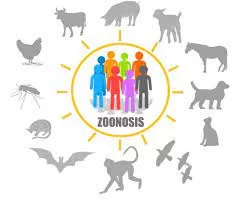New research from the University of Dundee reveals a significant link between adverse childhood experiences (ACEs) and the increased risk of developing multiple chronic conditions, known as multimorbidity, in adulthood. The study, led by Dr. Dhaneesha Senaratne of the School of Medicine, demonstrates that each additional stressful or traumatic event in childhood raises the odds of developing multimorbidity later in life by nearly 13%.
An adverse childhood experience (ACE) is any potentially traumatic or stressful event that occurs before the age of 18. These events can range from abuse and neglect to household dysfunction, as well as external stressors like bullying, war, or famine. While ACEs have been associated with a range of poor health and social outcomes in adulthood, their specific impact on multiple simultaneous health conditions has remained unclear until now.
Dr. Senaratne’s team conducted a systematic review and meta-analysis of 25 studies, involving over 370,000 people, to explore the cumulative effect of ACEs on long-term health. “As global populations continue to age, we are seeing an increase in people with multiple long-term health conditions,” Dr. Senaratne said. “The natural implication is to think that it is a problem affecting adults in mid or later life, but our research suggests that the origins may occur decades earlier in childhood.”
The analysis revealed that for each additional adversity experienced during childhood, the likelihood of developing multimorbidity in adulthood increased by 12.9%. The findings are published in BMC Medicine in the paper “The Impact of Adverse Childhood Experiences on Multimorbidity: A Systematic Review and Meta‑Analysis.”
Dr. Senaratne emphasized that while the research highlights the lasting effects of childhood adversity, it does not establish a direct causal relationship between ACEs and multimorbidity. He noted, however, that early prevention and identification methods targeting ACEs could reduce the risk of developing chronic health conditions later in life. “The increase of long-term health conditions within populations complicates health care provision and increases its cost,” he explained. “If we want to address this, it may be necessary to include strategies that consider childhood circumstances.”
The study also supports the growing movement toward trauma-informed models of healthcare, where the impact of negative life experiences is integrated into the assessment and treatment of chronic conditions. Dr. Senaratne noted that identifying factors early in the development of multimorbidity could help mitigate the escalating healthcare crisis tied to chronic disease.
The research forms part of the Consortium Against Pain Inequality (CAPE), a multicenter initiative involving universities from Dundee, Aberdeen, Edinburgh, Stirling, and University College London. CAPE aims to investigate how ACEs affect chronic pain, employing a range of research methods to address this growing public health concern.
The research provides a crucial understanding of the long-term effects of childhood adversity, emphasizing the importance of early intervention in childhood to improve adult health outcomes.
For more information, the full paper by Dr. Dhaneesha N. S. Senaratne et al. is available in BMC Medicine (2024), DOI: 10.1186/s12916-024-03505











